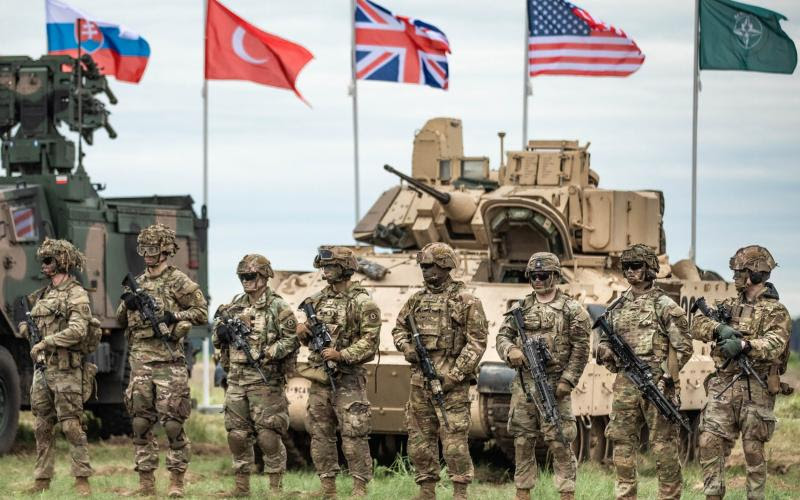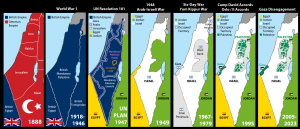“Technological advantage is always crucial in a war but historically the motivation to fight should not be ignored. The elites in the West might be inclined to solve problems by fighting/supporting a war, but western citizens are twice less inclined to bear arms, compared to the citizens of the rest of the World. The narrative in the G-7 plus EU countries that the war in Ukraine is also their own war seems to bear no correlation with the citizens of these countries willingness to fight.”
Kancho Stoychev, President of the Gallup International Association, Centre for Public and Political Studies, 11 March 2024.
A Gallup Survey carried out between October and December 2023 which showed that only 32% of EU citizens are willing to fight for their country if there is a war. Those least willing (and answered “no”) are Italy (78%), Austria (62%), Germany (57%) and Spain (53%).
EU leaders feel the need to talk up the “Russian threat”. They want their citizens to support war. EU leaders want to persuade their citizens about the need to spend much more on armaments. European Council President Charles Michel wrote on Euractiv (18 March 2024) “Europe must strengthen its defence capabilities and shift to a “war economy” mode in response to the threat posed by Russia.” This means the reorientation of national economic structures to prioritise military needs over civilian consumption.
Branislav Slantchev, a professor at the University of California San Diego, told ‘Euronews’ (28 May 2024):”The public is not going to like public services cut, higher prices, and higher taxes. Moving too fast toward reinvestment in defence risks draining public support before meaningful changes are made, especially if the threat to which the government is supposed to be responding does not seem imminent or realistic.”
Will EU citizens support a drop in their living conditions and the deterioration of public services to pay for more on armaments?Will this widen the gap between the EU elite and ordinary Europeans weighed down by the cost of living and expensive housing, and rootless in their societies?
The EU is militarizing itself through the European Defence Fund to invest in high-end defence capabilities, a European Air Shield and a new Commissioner for defence.
The European Investment Bank has created a Security and Defence Office offering streamlined financial support totalling €6 billion and expert assistance aimed at strengthening Europe’s security and defence capabilities.
One third of this military budget has come from the already severely underfunded Horizon Europe Research Programme in science and industry, badly needed for innovation and productivity if the EU is not to continue falling behind the United States and China.
At the beginning of this year McKinsey Global Institute warned: “Unless Europe can reenergize growth, its leading position on sustainability and inclusion could be compromised, eroding Europeans’ standard of living. Accelerating growth requires becoming more globally competitive, even in the face of mounting pressures.”
Supporting neutrality
The EU’s demographic decline makes it a smaller part of the world. The Europe of 27 would lose 60 million workers over the next 30 years, 33 million of whom between the ages of 20 and 45, the most productive and creative period of life.
Instead of humbly resetting its relations with the global majority in a multipolar world, the EU, as part of the West, wants desperately to live on, in denial, as the centre of a unipolar world that is no more. Instead of rediscovering the politics of diplomacy, dialogue and negotiation with Russia and China, most of the present EU leaders are choosing the path of war and confrontation. The total breakdown in relations between the EU and Russia because of the terrible war in Ukraine has its roots in the decision of the United States in 2008 to enlarge NATO to the borders of Russia. A number of top American diplomats (Madeleine Albright, George Kennan, Strobe Talbot to mention just a few) warned that expanding NATO to Russia’s border with Ukraine would be the beginning of a new cold war. That has come to pass. It is tragic for Ukraine that when it was on the point of signing an agreement with Russia in April 2022, British Prime Minister Boris Johnson visited Kiev and told President Zelensky to break off negotiations with Russia as the West was not ready to end the war.
Instead of building a new security architecture for Europe within the OSCE, after the collapse of the Soviet Union, to look after each country’s security without undermining that of their neighbour, the United States ignored Russia’s security concern and enlarged NATO. Since then NATO is spreading globally, absorbing the EU in the process.
Malta’s constitutional neutrality was part of the package to join the EU. We should adhere to that right and obligation. In a 2021 survey, 63% of Maltese expressed themselves strongly in favour of Malta’s position of neutrality. 18% of respondents considered Malta’s neutrality as important while 14% did not take any position. Just 6% of Maltese were against neutrality, on the grounds that as a member of the EU Malta was obliged to adhere to its common foreign and security policy. The main reasons given for supporting neutrality was that it was the only way to avoid involvement in conflict and wars, and maintain open global commercial relations.
The biggest threat to our neutrality may come from ourselves and the quality of our national leadership. We should foster good relations with all other countries, and deny the use of our territory as a launching pad to attack others. Today’s technology both in terms of missiles and air and sea transport has greatly diminished Malta’s strategic importance in the Central Mediterranean. We should use this fact to our advantage and refuse to again become a military logistical centre threatening others. Our neutrality is totally compatible with upholding the values of the United Nations: equality of states, solving disputes through non-military means, respecting the sovereignty of states, human rights, democracy and peace.
Times of Malta 23 august 2024




